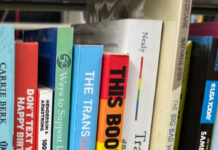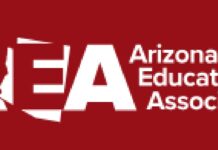We already told you about the comments made by Ryan Williamson, the Equity & Inclusion Coordinator of Urbandale schools.
Williamson claimed that House File 802, recently passed legislation that prevents schools from teaching certain divisive concepts as fact, will not stop the district in any way, shape or form the work supporting all of their students.
Williamson simply told staff to just change their language in an effort to align with the law. Rather than talk about privilege, talk about how we “individually, collectively impact the world.” Instead of talking about bias, associate “lived experiences,” which he says is what bias is anyway.
In his defense, Williamson goes on to say he does not believe Critical Race Theory is taught in the district. Therefore, the things HF 802 sets out to stop don’t have to be stopped because they aren’t happening already.
He said he had to educate administrators and district leaders on what Critical Race Theory is because of “misinformation” about the term.
“Is Critical Race Theory being taught in school,” he asked. “I feel very confident in saying no. I don’t think so. I don’t think that Critical Race Theory is in our classrooms.”
Even though in Williamson’s opinion, what he defines as Critical Race Theory may not be taught in the district, he said he still wanted to make sure district leaders knew exactly what Critical Race Theory was so they’d feel more comfortable answering if it is taught in the district.
Obviously, we cannot be in every Urbandale classroom. But thankfully for those of us simply looking for an honest answer, the district has its own “Equity and Inclusion Resource Guide.”
Among the resources is a list of books. Where do we start?
*White Fragility: Why it’s so hard for White People to talk about Racism
*How to be an Antiracist
*The New Jim Crow: Mass Incarceration in the Age of Colorblindness
*Raising White Kids, Bringing up Children in a Racial Unjust America
*Everyday White People Confronting Racial and Social Justice: 15 Stories
*Tears We Can Not Stop: A Sermon to White America
*White Rage: The Unspoken Truth of our Racial Divide
*Is Everyone Really Equal? An Introduction to Key Concepts in Social Justice Education
And, if you want more books, the resource guide instructs those looking to Google “antiracist book lists.”
If articles are more your thing, there’s a list of those too:
*A Love Letter to All the Overwhelmed White People Who Are Trying
*Speak Up: Tips for Responding to Everyday Bigotry
*10 Ways Well-Meaning White Teachers Bring Racism Into Our Schools
*How Racism Damages us as White People
*How to Tell if You’ve Been Unintentional Racist
*It’s Not Just the South: Here’s How Everyone Can Resist White Supremacy
*Privilege 101: A Quick and Dirty Guide
*What White Children Need to Know About Race
*Why white Parents Must Teach Their Children About Racism
*Explaining White Privilege to a Broke White Person
There’s also a list of LGBTQ+ resources available:
Bibi, a film by Victor M. Duenas: A story told from the perspective of Ben, a gay Latinx man, about his complicated relationship with his father and his home. This resource is supported by 6 lessons for students grade 6-12.
Iowa Safe Schools: Provides a safe, supportive, and nurturing learning environment in communities for LGBTQ and allied youth through education, outreach, advocacy, and direct services.
The Trevor Project: The leading national organization providing crisis intervention and suicide prevention services to lesbian, gay, bisexual, transgender, queer & questioning youth.
Human Rights Campaign: The goal of the human rights campaign is to ensure that every LGBTQ person is free to live their life openly, with their equal rights ensured.
Bisexual.org: a voice to the bisexual community, share accurate information, answer questions, and provide resources for further learning.
It’s Pronounced Metrosexual: An online resource educating on issues of identity, sexuality, gender privilege, and oppression, but in a fun, approachable way.
It Gets Better Project: An endless stream of inspiring stories shared by people within the LGTBQ community.
In case you are more of a visual learner, there is a list of documentaries and films:
*Race: The Power of an Illusion, a powerful three-part, three-hour film exploring the biology of skin color, the concept of assimilation, and the history of institutional racism (three 1 hour episodes)
Milk: This is the Academy Award-winning story of Harvey Milk, who became a pro-gay-rights activist later in life. Milk became California’s first openly gay elected official in the 1970s. Less than a year into his tenure, he was assassinated by another city official.
The Hate You Give: Based on the bestselling novel by Angie Thomas, a black teenager stuck between two worlds: the poor, mostly black neighborhood she lives in and the rich, mostly white prep school she attends.
Deconstructing White Privilege with Dr. Robin DiAngelo, explores what white privilege is and how it operates above and below the surface. (22 minutes)
I Didn’t Tell You, every wonder what a day in the life of a person of color is like? Listen to this power written and spoken by Norma Johnson. (7 minutes)
Under Our Skin, Seattle Times asks 16 participants to share their understanding of a range of race-related terms and concepts.
White Bred, excellent quick intro to how white supremacy shapes white lives and perceptions. (5 minutes)
Systemic Racism Explained: A short video explaining how systematic racism manifests in the community, education, socio-economic status, and social structure in today’s society.
But wait! There’s more! Podcats are available as well:
Teaching While White, hosted by longtime educators Jenna Chandler-Ward and Elizabeth Denevi, TWW’s podcast focuses on how whiteness shows up in the education sector and what anti-racist educators are doing to challenge that. Episodes feature different nationally renowned anti-racist educator guests. (any episode – times vary)
Black Like Me, host Dr. Alex Gee “invites you to experience the world through the perspective of one Black man, one conversation, one story, or even one rant at a time.” (any episode – times vary)
And websites:
https://fromprivilegetoprogress.org
www.showingupforracialjustice.org
https://teachingwhilewhite.org
And assessments:
Personal Self-Assessment of Anti-Bias Behavior, Anti-Defamation League
Harvard University’s Project Implicit est, Tony Greenwald and Marzarin Banaji
One lesson, if you need it:
https://lsintspl3.wgbh.org/en-us/lesson/ilpov18-il-ilbias/1: Provides a lesson on better understanding implicit bias and how it drives our interactions.
As a bonus, there’s an included social justice soundtrack!
Fight the Power: Public Enemy
Keep Ya Head Up: Tupac
If It’s Magic: Stevie Wonder
White Privilege: Mackelmore
White Privilege II: Mackelmore
Stand 4 What: Nick Cannon
This is America: Childish Gambino
Born This Way: Lady Gaga
Colors in Bloom: Lex Allen ft. Taj Raiden
Get Up, Stand Up: Bob Marley
Give Your Hands to Struggle: Sweet Honey in the Rock
Strength, Courage & Wisdom: India Arie
The Equity and Inclusion page also has a link to the 21-Day Equity Challenge. Daily topics include:
*Understanding Privilege
*Housing & Redlining
*Justice System Inequities
*Allyship
*Many more
In fact, here is the first week:
*Understanding Systemic Racism
*The Effects of Racism
*Understanding Bias
*Understanding Privilege
*Cultural Competence
Week 4 is a doozy:
*Black Lives Matter
*LGBTQ+
*Allyship
*Building Workplace Culture Around Equity
*Equity Tools and Approach for Change
You can view the entire list here.
And finally, the Urbandale District’s Equity and Inclusion page of its website includes a resolution from the district declaring Black Lives Matter.
“We support nonviolent protest and stand behind students who choose to participate in the long history of nonviolent protest in school…
“The killing of unarmed black men and women, including queer and trans persons of color, has left young people searching for answers to incredibly complicated and infuriating questions…
“Throughout our nation’s history, institutional and structural racism and injustice have led to deepening racial disparities across all sectors of society and have lasting negative consequences for our communities, cities and nation.
“Historically, when black people have fought for a more democratic society, the lives of all people have improved and, conversely, each time barriers to black people’s potential have been erected, our whole society has suffered…
“Be it resolved that the Urbandale Community School Board declares support for the Black Lives Matter movement and affirms that Black Lives Matter…
“The Urbandale School Board understands that the systematic change and internal work needed to be anti-racist is an ongoing process and requires a long-term commitment.
“To begin that process, the School Board commits itself to a year of anti-racist work including but not limited to book study, student and community listening sessions, developing board-level self-accountability, and more. We invite our entire community including students, staff, graduates, local business, elected officials, and others to join is in this year of anti-racist education.”
Taking all of that into account — and there’s an awful lot to unpack there — let’s look at some of the divisive concepts House File 802 prohibits from being taught as fact:
*One race or sex is inherently superior to another race or sex.
*The United States of America and the state of Iowa are fundamentally or systemically racist or sexist.
*That an individual, by virtue of the individual’s race or sex, is inherently racist, sexist or oppressive, whether consciously or unconsciously.
*That an individual, by virtue of the individual’s race or sex, bears responsibility for actions committed in the past by other members of the same race or sex.
So let’s look at the possible explanations.
Williamson doesn’t know what resources are listed on his own department’s website.
Williamson knows those resources are listed, but doesn’t believe they teach CRT.
Williamson knows those resources are listed, he understands they teach CRT, but he doesn’t believe those resources violate any of the divisive concepts.
Williamson knows those resources are listed, he understands they teach CRT, he understands they teach some of those divisive concepts, but he doesn’t believe the resources he has put out for the district are used anywhere in the district.
Or, one final possibility, CRT doesn’t mean what he thinks it means.
So let’s take a look at one of the video resources listed on the district’s resource guide:
And let’s quote it from the 45-second mark:
“The answer has to do with America’s history of systemic racism.”
Let’s review one of those divisive concepts that has been banned by House File 802:
*The United States of America and the state of Iowa are fundamentally or systemically racist or sexist.
I rest my case.

















